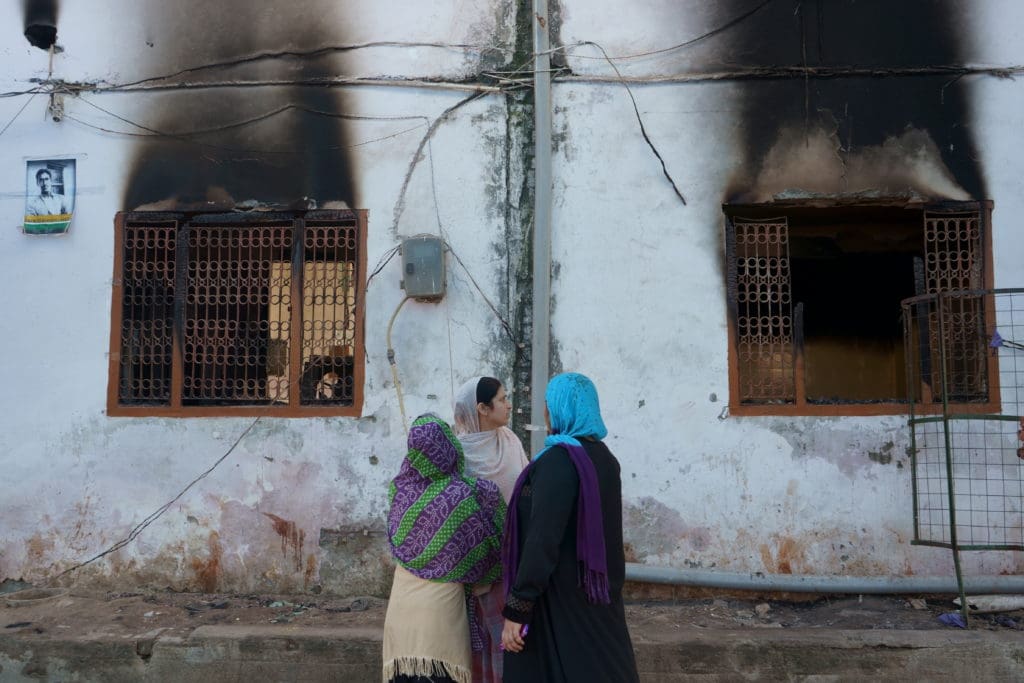
New Delhi has rejected criticism of its human rights record, raised by the US during several official meetings between the two nations. Indian Foreign Minister Subrahmanyam Jaishankar told US Secretary of State Antony Blinken in July that “the quest for a more perfect union applies as much to the Indian democracy as it does to the American one”.
Indian Parliamentarian Subramanian Swamy has warned Eric Garcetti, US President Joe Biden’s pick for Ambassador to New Delhi, against interfering in India’s Hindutva movement, arguing that the South Asian nation had a “Hindu identity” like the US had a “Christian” one.
Swamy, a member of the nation’s ruling Bharatiya Janata Party (BJP), invoked American political scientist Samuel. P Huntington’s 1996 bestseller “Clash of Civilisations and the Remaking of World Order”, a seminal book which argues that cultural and religious identities, rather than political ideologies, would be the primary sources of conflict in the post-Cold War world.
“We have nothing to hide and we can answer him as good as we get. But Hindutva is an internal matter while human rights is not an internal matter since it is part of United Nations (UN) Charter,” Swamy also said.
The term ‘Hindutva’, which roughly translates as ‘Hinduness’, was coined by Indian freedom fighter Vinayak Damodar Savarkar in the 1920s. It has gained increasing prominence since the election victory of Prime Minister Narendra Modi’s BJP in 2014.
According to Savarkar, Hinduism is the “essence” of India.
Hindutva is viewed as a form of Hindu nationalism which seeks to establish the cultural and political pre-eminence of the Hindu religion in India. The BJP and the Rashtriya Swayamsevak Sangh (RSS), its ideological parent organisation, proudly champion the Hindutva ideology.
“There are two words today in the country, Hindu and Hindutvavadi (followers of Hindutva). I am a Hindu but not a Hindutvavadi. Mahatma Gandhi is Hindu, (Nathuram) Godse (the person who assassinated Gandhi) is Hindutvavadi. A Hindu faces his fear while Hindutavadi bows down before his fear, and that fear creates enmity. This is the difference between Hindu and Hindutavadi,” Congress leader Rahul Gandhi said at a public event this week.
“There’s no question that the US-India relationship should be underpinned by our common commitment to democracy, to human rights, and civil society, as enshrined in our constitutions”, Garcetti said during the US Senate Committee on Foreign Relations hearing.
The committee members also asked Garcetti if he would voice his concerns against India’s federal Citizenship Amendment Act (CAA), which was described as “discriminating” against Indian Muslims.
“…human rights, defence of democracy is a pillar of our foreign policy but to answer specifically, if confirmed, I will actively raise these issues or raise them with humility. It’s a two-way street on these, but I intend to engage directly with civil society”, he said in response.
In addition to Swamy, Garcetti’s remarks haven’t gone down well with several prominent Indian observers.
Former Indian foreign secretary Kanwal Sibal said that the US must learn to “respect” the Indian democracy and stop assuming that New Delhi is “answerable” to it.
This story first appeared on sputniknews.com






